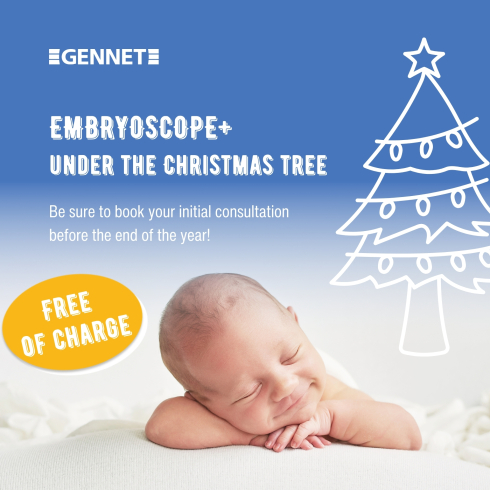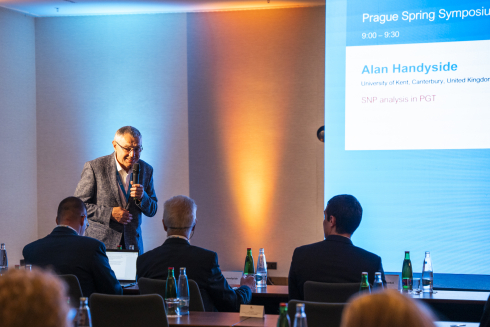Donor program and blood group
We would like to clarify some myths regarding the blood group of donors and recipients in connection with infertility treatment.
Petra Kločáková- Hánová is the manager of donor program of GENNET. She explains: „Many of our clients who intend to undergo a donor cycle believe that the blood group of the recipient, thus the expectant mother, and that of the egg donor must be identical. The reason for that is the fact that the parents do not wish their child to find out according to the blood group that the child is the outcome of IVF treatment.”
Nevertheless, this assumption is not based on true facts. The blood group of the child is affected both by the blood group of the mother and the father, as is explained in detail by the head of genetics department in GENNET MUDr. Monika Koudová: „Blood groups are determined by specific proteins on the surface of red blood cells called AB0 antigens. They decide whether your blood group is A, B, AB or 0. Their presence is genetically determined - the child inherits them from the parents and the blood group of the child can therefore be predicted, provided the blood groups of both parents are known. For instance, when the father has blood group A and mother 0, the donor can next to blood group 0 (identical with the mother) also have blood group A. The resulting combination will be blood group 0 or A, same as it would occur in spontaneous conception of the partners.“
See the overview of blood groups arising from the combination of parental blood groups below:
| Mother / Father | 0 | A | B | AB |
|---|---|---|---|---|
| 0 | 0 | 0, A | 0, B | A, B |
| A | 0, A | 0, A | 0, A, B, AB | A, B, AB |
| B | 0, B | 0, A, B, AB | 0, B | A, B, AB |
| AB | A, B | A, B, AB | A, B, AB | A, B, AB |
In addition to the system of antigens AB0 we must also remember so-called Rh factor. Approximately 80% of the Czech population has Rh positive (Rh +) and only 20% Rh negative (Rh -). A simple overview of heredity of the Rh system is shown below:
| Matka / Otec | Rh + | Rh - |
|---|---|---|
| Rh + | Rh +, Rh - | Rh +, Rh - |
| Rh - | Rh +, Rh - | Rh - |
Therefore, only in case that both parents have Rh negative, the child will also have Rh negative. In all other cases the future child can either have Rh positive or negative.
Many women are concerned about the health of their child when the Rh factor of the child differs from the maternal one. Chief physician of the IVF department in GENNET addresses this issue.
„A pregnant woman who is Rh negative sees her attending gynecologist during regular check-ups. Her level of antibodies against D antigen that can be present on fetal red blood cells is monitored. Fetal red blood cells can under certain circumstances penetrate into maternal circulation and induce the formation of anti-D antibodies. The pregnant woman is administered a corresponding dosage of immunoglobulin as a precautionary measure to prevent the formation of such antibodies. This procedure is maintained since the fetal Rh factor is not known during pregnancy.
When the newborn is Rh positive after the birth, the mother is again given immunoglobulin to prevent any problems in possible future pregnancies. When the newborn is Rh negative, it is not necessary to administer immunoglobulin.”
The conclusions of experts in genetics and IVF indicate that limitations of the blood group are not very significant when selecting a suitable egg donor and that it is necessary to know the blood group of the partner too. GENNET offers its clients a choice from extensive database of donors as a part of the donor program. The actual selection of the donor is based on the requirements of the couple while maintaining the compatibility of their blood groups.
You might be interested
Give yourself the most beautiful gift! Be sure to book your initial consultation before the end of the year!
Dear patients, We would like to inform you about our operating hours during the Christmas holidays from 22nd of December 2024, to 4th of January 2025.
The Centre of Medical Genetics and Reproductive Medicine, GENNET, a proud member of the FutureLife group, successfully hosted The Prague Spring Symposium 2024 on…
Watch the record of the Livestream with IVF specialist Dr. Liya Megrelishvili and coordinator Barbora Valentová who introduced news from our clinic.





